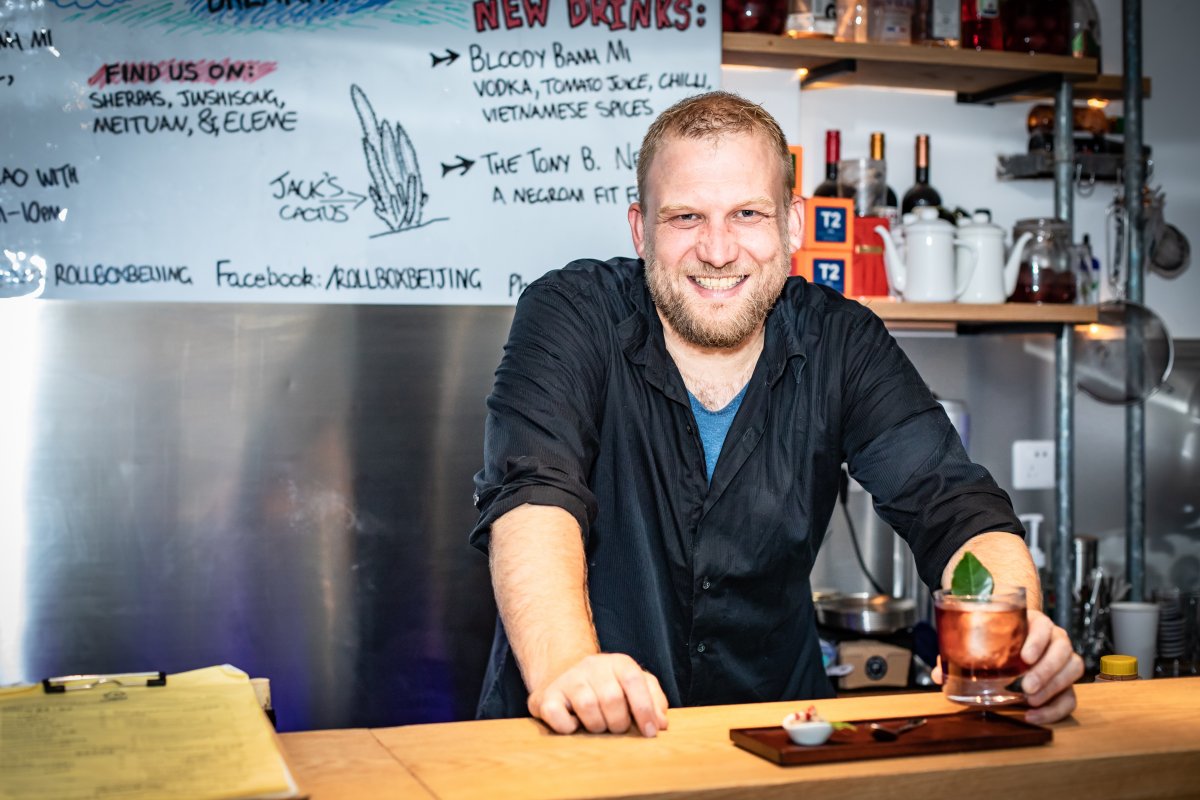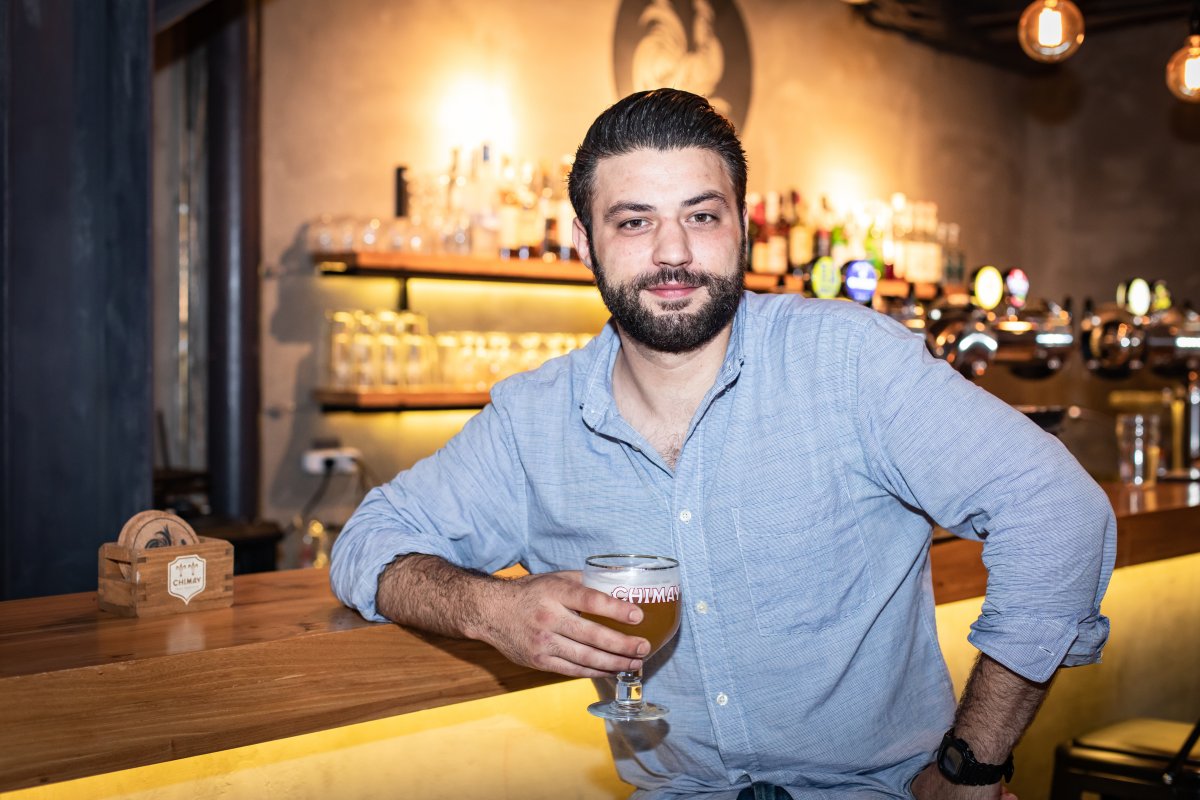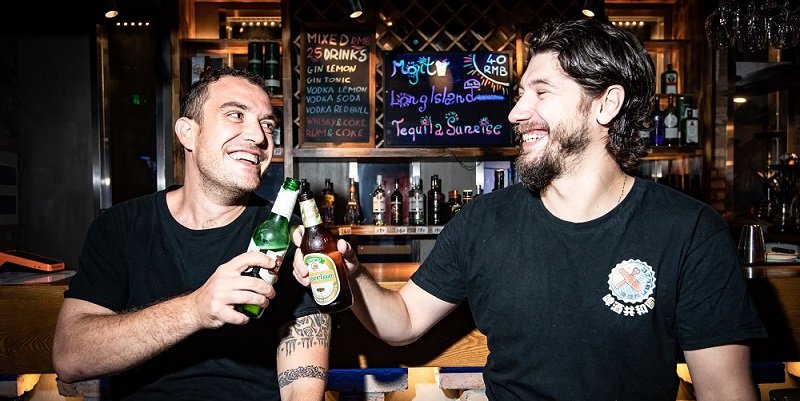Starting From Scratch: Tales of Humble Beginnings From Beijing’s F&B Scene
Veterans of the food and beverage (F&B) industry are no strangers to starting projects from scratch. However, that “from square one” work ethic can be both daunting and exhilarating for anyone thinking about packing in the day job to open a restaurant or launch an artisanal range. If that means you, and you don’t want to repeat the sort of rookie mistakes you might see on a Gordon Ramsay reality show, check out these startup tips from Beijing food and beverage insiders.

Mastering Mixology
If you’ve been around Beijing’s F&B scene in recent years, it’s likely that you’ve already heard of Garth Wilson. This jack-of-all-trades has been working in Beijing since 2009, most recently as co-owner of the reopened banh mi joint Rollbox. Wilson first visited the capital on his gap year in 2002 when he was 18 years old, and after returning to Australia for his undergrad and masters, spent nearly every holiday thereafter back in Beijing for work and leisure.
So how did he get involved in F&B? “My parents are all fantastic cooks, and apparently toddler Garth used to raid the spice cabinet to mix up ‘special drinks’ and stain every surface with turmeric,” he recalls. “As I got older, I progressed from ‘special drinks’ to desserts to full meals, then to getting a job in a restaurant and catering company when I was 14.” He worked in Chinese and Turkish restaurants throughout high school and well into university, and says that “working with non-English-speaking Chinese cooks all semester and visiting China every holiday was a great way to stay ahead of my Chinese classes at uni.”
Upon settling here, Wilson spent his first few years working for Stephanie Rocard, original owner and bartender at Mao Mao Chong, one of the city’s pioneering cocktail bars fusing Chinese ingredients with Western spirits and techniques. Speaking from his vast experience, Wilson says: “I think the best tips are the same as those for anyone wanting to start a career in any creative industry. If your passion outweighs your experience, volunteer, write a blog, or do something else that demonstrates your passion, builds your experience, and builds your body of work.”
He also points out: “I’ve never had a job or started a project where I didn’t already know the boss, the staff, or the collaborators, or wasn’t introduced or recommended by a friend. So it’s really important to get to know people who share your passion and to help each other out.”

From French Michelin Star Restaurants to Beijing’s Dinner Tables
Clement Rol, with the help of his business partners Thomas Salou and Edouard Simon, recently renovated and reopened the Courtyard 4 Belgian brasserie De Refter, dusting away the restaurant’s cobwebs and updating the decor and menu, to make it an altogether breezier venue.
Raised in a foodie family, Rol’s F&B journey began at the age of seven when he started helping out his dad in their family restaurant. As Rol puts it, “the only way to see my dad was in the kitchen.” At 14 years old, he was already busy working in restaurants, later enrolling in culinary school where he met his mentor Franck Renimel at the Michelin-starred restaurant En Marge in Aureville in France, accumulating a wealth of culinary knowledge.
What tips would Rol give to F&B hopefuls? “Don’t do it!” he jokes, before advising beginners that “if during your first month you don’t feel passionate, if you don’t want to learn, don’t do it. Whatever you choose to do, you have to put 100 percent effort into it. Also, your brain is like a library; everything you learn is like adding books to the collection.”

Craft Sausages on the Rise
Ah, sausages, those plump, juicy meat-stuffed skins beloved the world over. For a prime example of their transcontinental appeal, you need to look no further than Beijing’s Salsicceria Italiana Craft Sausages. Started by two Italians, Augusto Papetti and Michele Fosci, who first came to Beijing as exchange students in 2009, Salsicceria Italiana launched in April of last year, after the duo were unable to find a suitable retail space due to Beijing’s strict industry regulations.
Only requiring space for production and shipment, the duo started using tried and tested family recipes to create their sausages, taking great care to source high-quality meat from domestic distributors to ensure as authentic a final product as possible. At first, they'd be down at the meat market every day at dawn, but now they have a reliable wholesaler to provide them with fresh pork, chicken, and lamb.
Within six months, the team had found a suitable venue, opening what is now Republic, near the Workers’ Stadium, last December – though that process certainly wasn’t easy either. In the early days, Papetti and Fosci struggled to deal with the unending paperwork involved in the restaurant racket, and before long hired an agent to save them the trouble.
What else did they learn on the road to setting up Republic? “Don’t be afraid of taking risks, and try to be creative and ensure the best quality of your products,” Papetti advises. Discover their creativity and quality for yourself by visiting Republic, or get their products delivered straight to your door (WeChat ID: spasella).
More stories by this author here.
Email: tracywang@thebeijinger.com
Twitter: @flyingfigure
Instagram: @flyingfigure
Photos: Uni You








